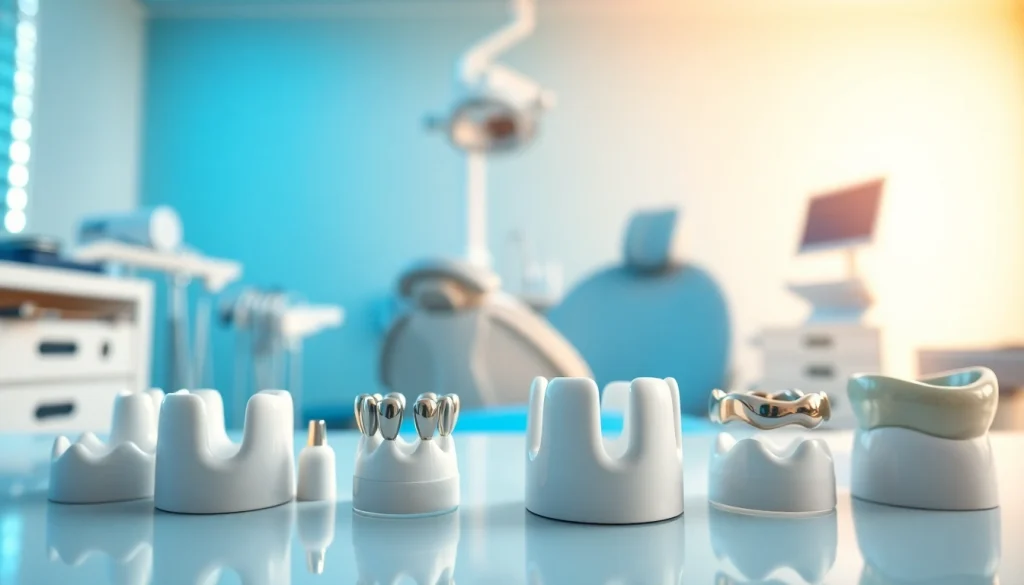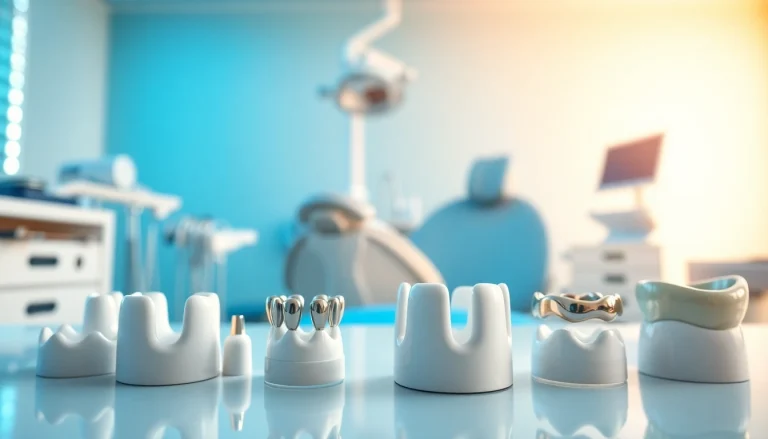
What Are Dental Crowns?
Definition and Purpose of Crowns
A dental crown is a tooth-shaped cap that is placed over a damaged tooth to restore its shape, size, strength, and improve its appearance. Dental crowns, also known as caps, encase the visible portion of a tooth that is above the gum line. They play a critical role in various dental treatments, such as covering a tooth that has undergone root canal therapy, supporting a tooth with a large filling, or restoring a misshapen or discolored tooth. In some cases, crowns are also used to secure bridges, or to cap dental implants, effectively replacing missing teeth and enhancing a patient’s overall dental structure. Crowns can significantly improve dental function and aesthetics, making them a vital part of restorative dentistry. For more information on the different types of crowns, their applications, and what to expect during the procedure, read on.
Benefits of Dental Crowns
Dental crowns offer numerous benefits that contribute to both oral health and aesthetics. Some of the most notable advantages include:
- Restoration of Functionality: Crowns enable patients to chew and speak with greater ease, as they restore the strength and integrity of weakened teeth.
- Protection Against Damage: Crowns shield compromised teeth from further damage, preventing painful scenarios such as fractures or decay.
- Aesthetic Improvement: Crowns can effectively conceal discoloration and restore the natural appearance of the tooth, contributing to a more uniform smile.
- Long-Lasting Solution: With proper care, dental crowns can last between 10 to 15 years, making them a durable option for tooth restoration.
- Support for Adjacent Teeth: Crowns can act as anchors for bridges, preventing misalignment of surrounding teeth by providing stability.
Common Misconceptions about Crowns
Despite their benefits, several misconceptions about dental crowns persist, leading to confusion among patients. Here are a few common misunderstandings:
- Crowns are Only for Cosmetic Purposes: While crowns do enhance aesthetics, their primary purpose is to restore the function and strength of damaged teeth.
- The Crown Procedure is Painful: Advances in dental practices have made the crown placement process relatively comfortable and manageable for most patients.
- All Crowns are the Same: Crowns come in various materials, each offering unique advantages for different dental needs.
- Once a Crown is Placed, Maintenance is Unnecessary: Dental crowns, like natural teeth, require regular care, including brushing, flossing, and periodic dental evaluations.
Types of Dental Crowns Available
Porcelain Crowns: Perfect for Aesthetics
Porcelain crowns are renowned for their natural appearance, making them an excellent choice for front teeth restorations. These crowns mimic the translucency and color of natural teeth, ensuring a seamless blend with the surrounding dentition. Thanks to advancements in technology, porcelain crowns are also highly durable and resistant to wear, making them suitable for both aesthetic and functional requirements. They are particularly favored by those seeking a restoration that does not compromise on look.
Metal Crowns: Durability and Strength
Metal crowns, typically fabricated from alloys, gold, or another high-strength metal, are lauded for their durability. They are particularly well-suited for molars and posterior teeth, where the chewing force is greatest. While not as aesthetically pleasing as porcelain crowns, metal crowns offer advantages like ease of application, lesser reduction of tooth material during preparation, and longevity, often lasting 15 years or more.
Resin Crowns: Cost-Effective Solutions
Composite resin crowns are often selected due to their affordability. While they do offer a balance of aesthetics and functionality, these crowns generally do not last as long as metal or porcelain options. Patients who opt for resin crowns should be aware that they may require more frequent replacements, particularly in high-stress areas of the mouth. Ideal for certain patients, resin crowns might be just the right fit for those with budget constraints or temporary needs.
The Dental Crown Procedure Explained
Initial Consultation and Assessment
The journey to receiving a dental crown begins with a thorough consultation with your dentist. During this initial visit, the dentist will assess the condition of the affected tooth and discuss the various crown options available based on individual needs. Digital imaging, X-rays, and physical examinations are often conducted to determine the proper treatment path and to ensure that the surrounding teeth and gums are healthy enough to support the crown. Following this assessment, a treatment plan tailored to the patient’s specific requirements will be developed.
Preparation of the Tooth for the Crown
The next step involves preparing the tooth for the crown. This process typically entails the removal of a portion of the enamel to create space for the crown. An impression of the tooth will also be taken, which is crucial for crafting a custom crown that fits perfectly over the prepared tooth. In instances where additional tooth structure is needed to support the crown, a filling material may be applied to build up the tooth.
Placement and Follow-Up Care
Once the crown is ready, the patient returns for the placement procedure. The dentist will meticulously adjust the crown for proper fit and bite before permanently cementing it in place. Patients often receive temporary crowns while waiting for their permanent crowns, which helps protect the prepared tooth and maintain aesthetics. After the procedure, dentists typically advise on follow-up care, including possible sensitivity management and instructions for oral hygiene to prolong the life of the crown.
Cost of Dental Crowns
Factors Affecting the Price of Crowns
The cost of dental crowns can vary widely based on several factors, including the type of crown chosen, the location of the dental practice, and the extent of the procedures required. Porcelain crowns may range from $800 to $3,000 per tooth, while metal crowns often fall between $500 to $1,500. Factors such as lab fees, the complexity of the dental case, and whether additional procedures like root canals or fillings are necessary can significantly impact the overall expense.
Insurance Coverage and Payment Options
Dental insurance often covers portions of crown costs, but specifics can vary widely depending on the provider and individual policy. It’s advisable for patients to check with their insurance provider regarding coverage for dental crowns. Many dental practices also offer financing options or payment plans to ease the financial burden, making dental restorations more accessible to a broader range of patients.
Comparing Costs of Different Crown Types
In making a decision on which crown to choose, cost can be a significant factor. Patients are encouraged to weigh the short-term costs against the long-term benefits of each type. For instance, while porcelain crowns may require a higher initial investment, their aesthetic advantages and durability may provide better value over time. Similarly, metal crowns, although less expensive initially, may translate to fewer replacements and maintenance, ultimately impacting overall costs.
Aftercare and Maintenance for Longevity
Best Practices for Caring for Dental Crowns
To ensure the longevity of dental crowns, diligent aftercare is essential. Patients should maintain regular brushing and flossing habits, treating the crowned tooth like any natural tooth. Additionally, using a non-abrasive toothpaste can help avoid damage to the crown. Avoiding overly hard or sticky foods can also prevent crowns from cracking or loosening over time. Regular dental checkups will further assist in monitoring the crown’s condition and providing timely care for any issues that may arise.
Regular Dental Check-ups: Importance and Frequency
Patients are encouraged to schedule routine dental check-ups to maintain both their oral health and the integrity of their crowns. Dental professionals often recommend visits every six months, but additional appointments may be necessary for those with specific dental issues. During these visits, the dentist can check for signs of wear or damage and address any concerns early on, thus preventing more extensive treatments down the line.
Signs of Issues with Dental Crowns
Patients should be vigilant for signs that may indicate a problem with their dental crowns. Common issues might include increased sensitivity to temperature changes, discomfort when biting or chewing, or visible cracks and chips. If any of these symptoms occur, it’s essential to consult a dentist promptly to avoid further complications and ensure the long-term success of the dental restoration.






